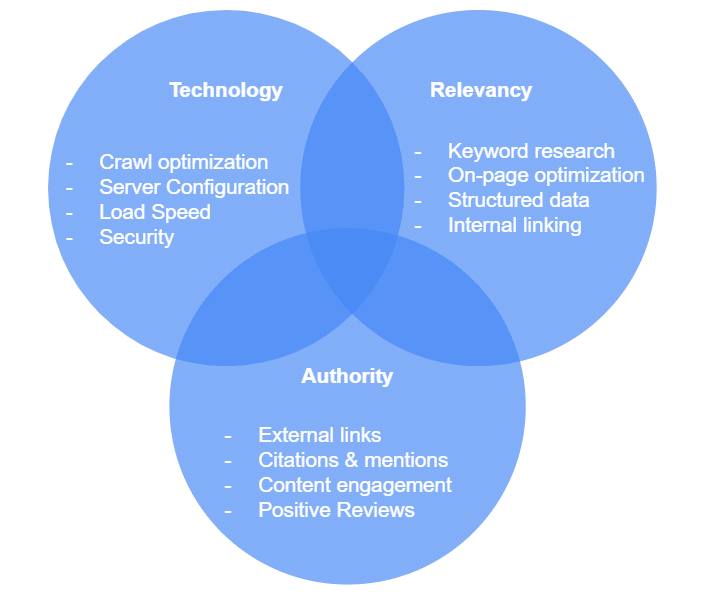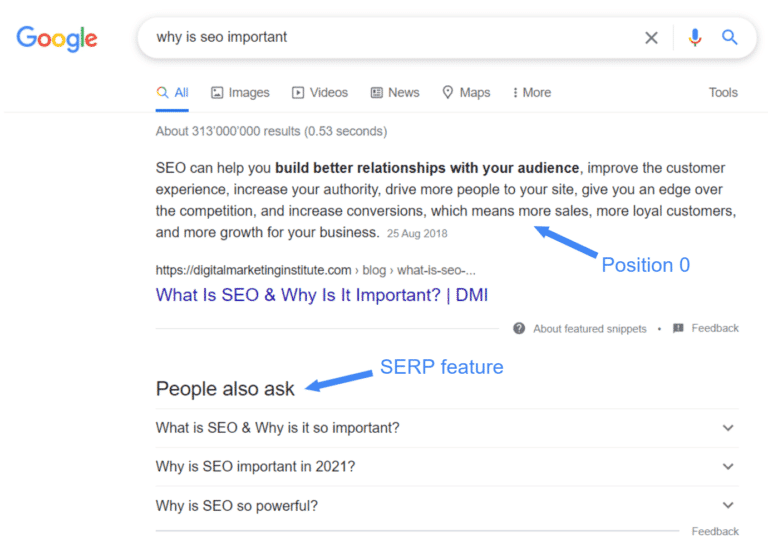Join
"The Marketing Mixtape"
Get the latest digital marketing insights straight to your inbox.
Unveiling the secrets of Google’s algorithm

SEO audits can be complicated, not least because no one really knows exactly how Google works. However, these insights will help set you on the right track.
An SEO audit is an analysis of how your online presence relates to best practices. This is the first major step in creating a plan that will deliver measurable results, which will ideally involve increasing your visibility in the search results.
Google’s search engine algorithms are among the most sophisticated in the world, and they’re constantly evolving. There are currently at least 200 known ranking factors with varying levels of influence on the search results.
All these ranking factors fall into one of the three pillars of SEO – technology, relevance, and authority. While the best SEO practices change as Google’s algorithm advances, these three pillars always stay the same to form the foundational elements of SEO.
In this guide, we will delve into how you can overcome some of the biggest challenges of SEO:
SEO offers a completely free way to enhance your business’s online visibility. However, the constantly evolving nature of Google’s algorithms mean that what might have worked just a few years ago no longer does. In some cases, the best practices of old have even become detrimental. For example, with the release of the Google BERT algorithm update in 2019, the attention shifted toward user intent, which doesn’t always directly match the keywords entered into the search field. In other words, directly answering what people are searching for is no longer enough – you also need to know the real intention behind the keywords they enter.
While many of Google’s ranking factors are new or have changed since their inception, others are much the same as they always have been. These include the more obvious entries on an SEO auditing checklist, such as the following:
Technical considerations concern factors such as the layout of your website and the coding behind it. Clean code, for example, is essential for adhering to best practices. If your website regularly returns error messages, such as 404 pages due to dead links, its standing in search results may be adversely affected. When carrying out a technical SEO audit of your website, be sure to examine essential files, such as sitemap.xml and robots.txt. Also, don’t forget to examine your content management system (CMS) for potential issues like outdated themes or plugins.
For the relevance pillar of SEO, you’ll need to examine your content itself. The obvious starting point here is keyword choice and the prevalence of those keywords. Finding the right balance between content quality, relevance, and keyword usage, is especially important. For example, if you use too many duplicate keywords, Google’s crawlers might penalise your site for keyword stuffing. On the other hand, if your content lacks conciseness or relevance, the crawlers will have a hard time trying to make sense of it and categorise it appropriately. Finally, don’t forget to pay attention to user experience, as you need your site to perform well on any device or browser.
The final pillar concerns authority, which revolves around how your website stacks up against the competition. There is a lot of crossover here with the previous pillars as well. For example, if your content lacks focus or is too simplistic, then it might not be authoritative enough to do well in the search results. Another crucial element of authority is your backlink profile. If you have lots of backlinks on low-quality affiliate sites or article directories, this may reflect poorly on your site as well.


While Google generally doesn’t reveal a lot about the inner workings of its search algorithms, they do regularly publish recommendations for webmasters. This should be one of the first resources you refer to when optimizing your website. Here are some of the most important from 2021:
Lastly, you must regularly monitor your key performance indicators (KPIs). By tracking these critical metrics, you can look for areas in need of improvement and continuously optimise your website according to the latest best practices. Here are some of the most important KPIs you should be tracking:
Get the latest digital marketing insights straight to your inbox.
